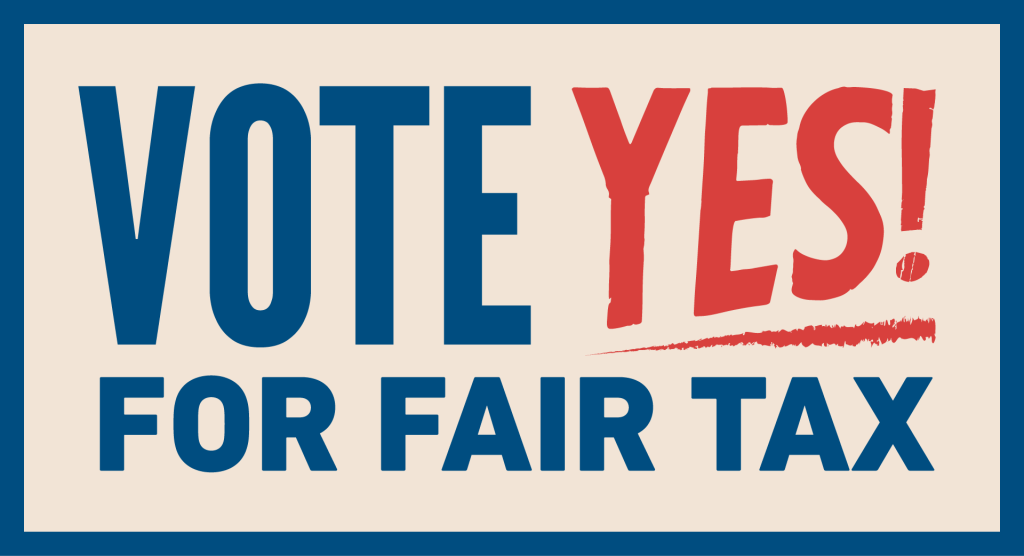A progressive state income tax would advance our mission to create more healthy, sustainable, and equitable communities in the Chicago region.
WHAT IS THE FAIR TAX?
The Fair Tax constitutional amendment would change the state constitution by eliminating the requirement that says the state of Illinois must tax income at a single rate. Passing the Fair Tax amendment would allow for higher taxation rates for higher incomes and lower taxation rates for people with low and moderate incomes, as the federal income tax is structured.
After legislators voted in 2019 to put this question before voters, it will appear on Illinois’ November 2020 general election ballot. A “yes” vote of more than 50 percent of those voting in the election or more than 60 percent of those voting on the question is required.
If passed, 97 percent of Illinois taxpayers will receive a tax cut or see no change in their taxes. The only increases will be on the top 3 percent of households — those making more than $250,000 per year.
Fair Tax reform would raise more than $2.6 billion per year for state and local government in Illinois.
WHY IT MATTERS
Now more than ever, Illinois needs to identify ways to generate more revenue to address pressing needs. The COVID-19 pandemic has shined a spotlight on the state’s lack of investment in public transit, walking, and biking.
Gov. Pritzker said in February that, if the Fair Tax amendment doesn’t pass in November, there will be $100 million in cuts to transit funding, along with cuts in many other areas. Given the impact of COVID-19 on the state’s budget, that number is now likely much higher. The coronavirus crisis has already placed enormous strain on transit agency budgets, and it’s expected to get worse.
The 2019 capital bill included important steps toward building a more sustainable transportation network statewide. In that bill, Active Trans and our partners won two key victories, both of which are long-term investments and firsts for Illinois:
- Sustainable capital funding for public transit.
- $50 million annually for walking and biking projects.
But capital bill revenues along with other important sources, such as the gas tax and sales tax, are very much in jeopardy. A Fair Tax could help Illinois begin to fill the gaps.
A Fair Tax could provide financial relief for essential transit workers and other frontline employees by reducing tax bills for lower income Illinoisans and raising revenue from the wealthy. As the state looks for new ways to raise revenue, it can’t do it on the backs the people hit hardest by this crisis.
A progressive income tax would contribute to progress on issues that intersect with transportation, including housing, jobs, education, and health and human services. There can’t be progress on Active Trans’ health, sustainability, and equity goals in transportation without progress in these areas.
If you share our vision for a more just and sustainable transportation network in Illinois, vote yes on the Fair Tax in November.
You can support our work on the Fair Tax and other issues related to the COVID-19 pandemic by becoming an Active Trans member or renewing your membership today. You can also make a one-time donation.

